
by Christian Crouse
"Utopia project" is an annual summer workshop organized by the Athens School of Fine Arts in Rethymno Crete.
UTOPIA & VIOLENCE
EXPERIMENTATION AND RESEARCH IN CONTEMPORARY ARTISTIC PRACTICES
6th Painting Studio ASFA (Athens School of Fine Arts)
Timetable: Friday of 29 June - Friday of 13 July 2007
Utopia is a concept that always fascinates artists as a free expression of their unlimited imagination and desire. Art, via the utopia is released by the restrictions of reality and finds its way to the expression of its visions. On the occasion of this relation, the workshop is dealing with the prolific and multi discussed significance of utopia. The term utopia in the daily vocabulary is connected with the ideal, future, the unfeasible and creates margins for many and often contradictory interpretations.
Utopias are the places of dreams and hope for a better life, that give exit from the incomplete reality. In certain cases they oppose in scientific or biological laws, involving the metaphysics, sometimes they are ephemeral shelters that do not set particular sociopolitical reflections, but usually their creation is based on the intention to criticize the rendered institutions and the structure of existing society.
In 1515 More wrote his most famous and controversial work, Utopia, a novel in which a fictional traveler, Raphael Hythloday (whose first name is an allusion to the archangel Raphael, who was the purveyor of truth, and whose surname means "dispenser of nonsense" in Greek), describes the political arrangements of the imaginary island nation of Utopia (a play on the Greek ou-topos, meaning "no place", and eu-topos, meaning "good place"). In the book, More contrasts the contentious social life of European states with the perfectly orderly and reasonable social arrangements of the Utopia, where private property does not exist and almost complete religious toleration is practiced.
Many commentators have pointed out that Karl Marx's later vision of the ideal communist state strongly resembles More's Utopia in regards to individual property, although Utopia is without the atheism that Marx always insisted upon. Furthermore, it is notable that the Utopia is tolerant of different religious practices but does not advocate tolerance for atheists. More theorizes that if a man did not believe in God or an afterlife of any kind he could never be trusted as he would not be logically driven to acknowledge any authority or principles outside himself.
More might have chosen the literary device of describing an imaginary nation primarily as a vehicle for discussing controversial political matters freely. His own attitude towards the arrangements he describes in the book is the subject of much debate. While it seems unlikely that More, a devout Catholic, intended pagan, proto-communist Utopia as a concrete model for political reform, some have speculated that More based his Utopia on monastic communalism based on the Biblical communalism described in the Acts of the Apostles. Due to the nature of More's writing, however, it is at times difficult to tell his satirical jabs at society from how he actually believes things should be.
Utopia is often seen as the forerunner of the Utopian genre of literature, in which different ideas of the "ideal society" or perfect cities are described in varying amounts of detail by the author. Although a typically Renaissance movement, based on the rebirth of classical concepts of perfect societies as propagated by Plato and Aristotle, combined with Roman rhetorical finesse (see Cicero, Quintilian, epeidietic oratory (that of praise or blame)) Utopianism continued well into the enlightenment age.
The original edition included details of a symmetrical alphabet of More's own invention, called the "Utopian alphabet". This alphabet was omitted from later editions, though it remains notable as an early attempt at cryptography that may have influenced the development of shorthand.
MORE from Wikipedia...

















Bologna, September 8, 1921
Dearest Malatesta,
I read with great interest your two articles, recently appeared in “U.N.”, about the important and always worth discussing problem of crime.
No doubt your arguments in support of the solution we anarchists give to the question are indisputably clear and effective. However, let me insist on some of your ideas, which solve some aspects of the problem, but do so in a way either too general and abstract or too particular.
For example, you say: “For us the accomplishment of social duties must be voluntary, and one has a right to take a forcible action only against those who voluntary offend others and hinder a peaceful social coexistence. Force and physical constraint can only be used against a materially violent thrust, for sheer necessity of defence”.
Going by the second part of your reasoning, it would almost look like only “a materially violent thrust” constitutes a violation of the justice principle that will be fundamental in the future society.
Why force and physical constraint, although limited and inspired by the idea of a sheer necessity of defence, should not be used also in those cases (unfortunately these will be aspects of the moralizing crime of the new social environment) in which a serious damage can be still caused to one’s fellow men without exercising a “materially violent” act?
Is not the act of exercising material violence upon a person, to rob him of some belonging, equivalent to the act of succeeding in the same robbing without using any violence whatsoever?
Moreover, what is the difference between, say, someone who violently kills a fellow man and someone who drives him to die by exercising a criminal and shifty persuasion?
The foregoing is just an example, not to say that hundreds of cases could be mentioned in which the offence, the damage to someone else’s life can happen without material violence.
On the other hand, there are a right violence and a wrong violence. Therefore, the injustice does not lie so much in the external act that carries it out, as in the fact itself that someone has to suffer anyway by someone else’s nastiness and wickedness.
On this topic you say: “We do not see any other solution than leave decisions in the hands of those concerned, in the hands of the people, i.e. the mass of citizens, which will act differently according to the circumstances and to their own varying degree of civilization”
However, ‘people’ is too generic an expression here, hence the question remains unsolved.
This kind of reasoning seems to repeat the error made by Kropotkine, according to whom the people is supposed to do everything, and for him the people is only a generic multitude.
Saverio Merlino criticized very well this and other errors of Kropotkine’s idea of anarchism; and, arguing with you, he offers the following solution to the relevant problem of social defence in his book “Collectivist Utopia”: “Between the current system and the assumption that crime should cease, I believe there is room for intermediate forms of social defence that differ from a government function. Such social defence would be exercised under the people’s eyes and control in every place, as any other public service, like health, transportation, etc. and therefore it could not degenerate into an instrument of oppression and domination”.
Why should not we anarchists reach this concept? We want to abolish the present machinery of so called justice, with all its painful and inhuman aspects, but we do not want to replace it with either individual liberty or the crowd’s summary judgement. The sense of justice of men needs to be improved, and the forms of expressing and defending it need to be worked out.
I raised these modest objections to you, mainly to offer you the opportunity to come back to such an important topic, which needs to be discussed.
Consider me always
your loving
Aldo Venturini
The criticism of our friend Venturini is quite right: however, I point out to him that I only expressed some ideas about the complex question of crime, with no intention to offer a solution valid for all possible cases.
I believe that all that can be said and done to fight crime can only have a relative value, depending on the time, the places, and above all the degree of moral development of the environment where the events take place. The problem of crime will only find an ultimate and completely adequate solution when... crime will no longer exist.
I know we are usually blamed for the vagueness and indeterminacy of our proposals to solve the most painful social problem. And I know that anarchists, unanimous in the destructive criticism of current morals and institutions, split up in the most diverse schools and tendencies, as soon as it comes to dealing with the problem of reconstruction and practical life in the future society.
However, this does not seem bad to me; on the contrary, it seems to me the main characteristic and merit of anarchism, which does not intend to fix the avenues of the future beforehand, but rather to simply guarantee the conditions of freedom necessary for the social evolution to eventually secure the greatest well-being and the greatest material, spiritual and intellectual development for all.
The authoritarians, the rulers, either believe they hold an infallible formula, or must pretend to hold it, as they intend to lay down and impose the law. However, all history shows that the law’s only use is to defend, strengthen and perpetuate the interests and prejudices prevailing at the time the law is made, thus forcing mankind to move from revolution to revolution, from violence to violence.
On the contrary, we do not boast that we possess absolute truth; we believe that social truth is not a fixed quantity, good for all times, universally applicable, or determinable in advance, but that instead, once freedom has been secured, mankind will go forward discovering and acting gradually with the least number of upheavals and with a minimum of friction. Thus our solutions always leave the door open to different and, one hopes, better solutions.
It is true that in reality one has to take specific action, and cannot live without doing anything particular, always awaiting something better. However, today we can only run after an ideal, even if we know that ideals are not the only factors of history. In life, besides the drawing force of ideals, there are material conditions, habits, contrasts of interest and will, in brief, innumerable necessities which one has to submit to, in the everyday conduct. In practice, one does what one can: in any case, anarchists must stick to the mission of pushing towards their ideal, and preventing, or striving to prevent, that the inevitable flaws and the possible injustices be sanctioned by the law and perpetuated through the State’s force, i.e. the force of all placed at the service of some.
Anyway, let us come back to the topic of crime.
As Venturini correctly points out, there are worse ways of offending justice and freedom than those committed by material violence, against which the resort to physical constraint can be necessary and urgent. Therefore I agree that the principle I put forward, i.e. that one has a right to resort to material force only against those who want to violate someone else’s right by material force, does not cover all the possible cases and cannot be regarded as absolute. Perhaps we would come closer to a more comprehensive formula by asserting the right to forcible self-defence against physical violence as well as against acts equivalent in manner and consequences to physical violence.
We are entering a case by case analysis though, which would require a survey of different cases, leading to a thousand different solutions, without touching the main point, the greatest difficulty of the question yet, i.e. who would judge and who would carry out the judgements?
I had claimed the need to leave decisions in the hands of those concerned, in the hands of the people, i.e. the mass of citizens, etc.
Venturini points out that ‘people’ is too generic an expression, and I agree with him. I am far from admiring “the people” as Kropotkine did. Although, on the other hand, he fixed up everything by calling the crowd ‘people’ only when it behaved in a way he liked. I know that the people is capable of anything: ferocious today, generous tomorrow, socialist one day, fascist another day, at one time it rises up against the priests and the Inquisition, at some other time it watches Giordano Bruno’s stake praying and applauding, at one moment it is ready for any sacrifice and heroism, at some other moment it is subject to the worst influence of fear and greed. What can one do about that? One has to work with the available material, and try to get the best out of it.
Like Venturini, I do not want either individual liberty or the crowd’s summary judgement; however, I could not accept the solution proposed by Merlino, who would like to organize the social defence against criminals as any other public service, like health, transportation, etc., because I fear the formation of a body of armed people, which would acquire all the flaws and present all the dangers of a police corps.
In the interest of a service, i.e. of the public, it is useful that railwaymen, for instance, specialize in their job, doctors and teachers entirely devote themselves to their arts; however, it is dangerous and corrupting, although technically advantageous perhaps, to allow someone to be a policeman or a judge by profession.
Everybody should take care of social defence, in the same way in which everybody promptly helps when public calamities occur.
To me a policeman is worse than a criminal, at least than a minor common criminal; a policeman is more dangerous and harmful to society. However, if people do not feel sufficiently protected by the public, no doubt they immediately call for the policeman. Therefore, the only way of preventing the policeman from existing is to make him useless by replacing him in those functions that constitute a real protection for the public.
I conclude with the words of Venturini: “The sense of justice of men needs to be improved, and the forms of expressing and defending it need to be worked out”.

According to the last returns under the Population Act, the poor and working classes of Great Britain and Ireland have been found to exceed fifteen millions of persons, or nearly three-fourths of the population of the British Islands.
The characters of these persons are now permitted to be very generally formed without proper guidance or direction, and, in many cases, under circumstances which directly impel them to a course of extreme vice and misert; thus rendering them the worst and most dangerous subjects in the empire; while the far greater part of the remainder of the community are educated upon the most mistaken principles of human nature, such, indeed, as cannot fail to produce a general conduct throughout society, totally unworthy of the character of rational beings.
The first thus unhappily situated are the poor and the uneducated profligate among the working classes, who are now trained to commit crimes, for the commission of which they are afterwards punished.
The second is the remaining mass of the population, who are now instructed to believe, or at least to acknowledge, that certain principled are unerringly true, and to act as though they were grossly false; thus filling the world with folly and inconsistency, and making society, thoughout all its ramifications, a scene of insincerity and counteraction.
In this state the world has continued to the present time; its evils have been and are continually increasing; they cry aloud for efficient corrective measures, which if we longer delay, general disorder must ensue
"But," say those who have not deeply investigated the subject, "attempts to apply remedies have been often made, yet all of them have failed. The evil is now of a magnitude not to be controlled; the torrent is already too strong to be stemmed; and we can only wait with fear or calm resignation to see it carry destruction in its course, by confounding all distinctions of right and wrong."
Such is the language now held, and such are the general feelings on this most important subject.
These, however, if longer suffered to continue, must lead to the most lamentable consequences. Rather than pursue such a course, the character of legislators would be infinitely raised, if, forgetting the petty and humiliating contentions of sects and parties, they would thoroughly investigate the subject, and endeavour to arrest and overcome these mighty evils.
The chief object of these Essays is to assist and forward investigations of such vital importance to the well-being of this country, and of society in general.
The view of the subject which is about to be given has arisen from extensive experience for upwards of twenty years, during which period its truth and importance have been proved by multiplied experiments. That the writer may not be charged with precipitation or presumption, he has had the principle and its consequences examined, scrutinised, and fully canvassed, by some of the most learned, intelligent, and competent characters of the present day: who, on every principle of duty as well as of interest, if they had discovered error in either, would have exposd it;--but who, on the contrary, have fairly acknowledged their incontrovertible truth and practical importance.
Assured, therefore, that his principles are true, he proceeds with confidence, and courts the most ample and free discussion of the subject; courts it for the sake of humanity--for the sake of his fellow creatures--millions of whom experience sufferings which, were they to be unfolded, would compel those who govern the world to exclaim--"Can these things exist and we have no knowledge of them?" but they do exist--and even the heartrending statements which were made known to the public during the discussions upon negro slavery, do not exhibit more afflicting scenes than those which, in various parts of the world, daily arise from the injustice of society towards itself; from the inattention of mankind to the circumstances which incessantly surround them; and from the want of a correct knowledge of human nature in those who govern and control the affairs of men.
If these circumstances did not exist to an extent almost incredible, it would be unnecessary now to contend for a principle regarding Man, which scarcely requires more than to be fairly stated to make it self-evident.
This principle is, that "Any general character, from the best to the worst, from the most ignorant to the most enlightened, may be given to any community, even to the world at large, by the application of proper means; which means are to a great extent at the command and under the control of those who have influence in the affairs of men."
The principle as now stated is a broad one, and, if it should be found to be true, cannot fail to give a new character to legislative proceedings, and such a character as will be most favourable to the well-being of society.
That this principle is true to the utmost limit of the terms, is evident from the experience of all past ages, and from every existing fact.
Shall misery, then, most complicated and extensive, be experienced, from the prince to the peasant, throughout all the nations of the world, and shall its cause and the means of its prevention be known, and yet these means withheld? The undertaking is replete with difficulties which can only be overcome by those who have influence in society: who, by foreseeing its important practical benefits, may be induced to contend against those difficulties; and who, when its advantages are clearly seen and strongly felt, will not suffer individual considerations to be put in competition with their attainment. It is true their ease and comfort may be for a time sacrificed to those prejudices; but, if they persevere, the principles on which this knowledge is founded must ultimately universally prevail.
In preparing the way for the introduction of these principles, it cannot now be necessary to enter into the detail of facts to prove that children can be trained to acquire "any language, sentiments, belief, of and bodily habits and manners, not contrary to human nature."
For that this has been done, the history of every nation of which we have records, abundantly confirms; and that this is, and may be again done, the facts which exist around us and throughout all the countries in the world, prove to demonstration.
Possessing, then, the knowledge of a power so important which, when understood, is capable of being wielded with the certainty of a law of nature, and which would gradually remove the evils which now chiefly afflict mankind, shall we permit it to remain dormant and useless, and suffer the plagues of society perpetually to exist and increase?
No: the time is now arrived when the public mind of this country, and the general state of the world, call imperatively for the introduction of this all-pervading principle, not only in theory, but into practice.






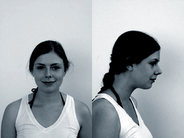
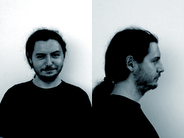







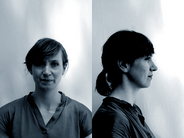


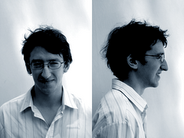


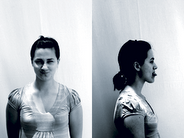





[…] We know that space has been and still is the fundamental metaphor in socio-political thought and practice, including the oppositional imagination of alternative futures. As far as analysis is concerned, the base-superstructure schema and the public-private divide, both (hierarchical) spatial representations of the social, offer characteristic examples. The first one has marked the trajectory of Marxist theorization, while the second underlies the liberal understanding of many contentious issues (from corruption to relations between religion and politics). In the field of political imagination, the most important example is, of course, utopian discourse. Utopias have been traditionally imagined in spatial terms – as islands, enclosures or colonies, as delimited spatial entities (Anderson 2006: 42). Typical of this obsession with space is, in More’s Utopia, its representation as an island divided into fifty-four cities, each divided again into thirty households (Jameson 2004: 39) as well as the rules regulating – ordering – all social activities. Likewise, the kernel of many utopian visions is illustrated as a building, such as Bacon’s House of Solomon or Fourier’s Palace or Phalanstery, etc. The metaphor of space and the reinstatement of its homogeneity – or, at least, a celebration of its nostalgic trace – has remained to a very large extent dominant within political imagination in the Left both in its critical and utopian dimensions. Even somebody like Giorgio Agamben, who has followed the delicate transformations of biopolitical sovereignty through a very sophisticated theoretical prism, aiming at destabilizing simplistic spatial models – hence his insistence on ‘thresholds’ and ‘zones of indistinction’, on ‘inclusive exclusions’ and paradoxical topologies and flows – cannot refrain from using the quite traditional spatial model of the container. How else can one understand his claim that ‘today it is not the city but rather the camp that is the fundamental biopolitical paradigm of the West’? (Agamben 1998: 181). Even if the camp is conceptualized in a way transcending simplistic notions of localization (land), it does remain a form of localization and continues to be conceived in rather traditional spatial terms: the birth of the camp signals ‘the political space of modernity itself’, while the state of exception, of which it is the materialization, is described as ‘a new and stable spatial arrangement’ (Agamben 1998: 174-5). What is at stake in it is the ‘creation of a space’, the delimitation of a space, containing the threshold of indistinction between bare life and juridical rule (Agamben 1998: 174) and this containing spatial function is incarnated in a proliferating variety of physical spaces (one example is offered by the zones d’ attente in French international airports) (Agamben 1998: 174). No wonder that in the cover of the US edition of Homo Sacer one finds a topographical master plan of Auschwitz.
The question is to what extent such spatial metaphors can still account for the complexity of our world, to what extent they liberate or enslave political imagination. My worry is that such paradigms and models reproduce on another level the repression of the political characteristic of the post-democratic late capitalist city. We know, for example, that utopia involves a ‘suspension of the political’ (Jameson 2004: 43). And that also applies to its radical versions. In fact, such an anti-political tendency, a ‘post-political vision’, has generally characterized the radical tradition in the West. This is what Schwartz has described as the ‘antipolitical legacy’ of the radical tradition. A big part of radical theory – from Rousseau to Marx and Lenin – has ‘sought to transcend politics through the creation of conflict-free societies’ fulfilling ‘a universal conception of “true human interests”, thereby eliminating social conflict and the need for politics’ (Schwartz 1995: 3, 21). Both reactionary and progressive utopias have involved spatializations repressing the political. In the words of Pierre Rosanvalon, ‘The liberal economic utopia of the eighteenth century and the socialist political utopia of the nineteenth century paradoxically are part of the same representation of society founded on the ideal of the abolition of politics’ (Rosanvalon 2006: 153). And isn’t the situation today similar with the post-democratic consumerist utopia and the appealing immanentist idea that resistance to it does not require any real political mediation? We also know that explanations based on the base-superstructure model – and the same might apply to the fetishization of the public-private distinction – have neglected or even foreclosed the element of the political (Laclau and Mouffe 1985). Even in Agamben – at least in Homo Sacer – the price to be paid for locating the metaphor of the camp at the heart of a dystopian historical dialectic, which continuously advances incessantly colonizing more and more aspects of the social, seems to be the ultimate repression of the political. […]
References
Agamben, Giorgio, Homo Sacer: Sovereign Power and Bare Life, Stanford: Stanford University Press, 1998.
[…] In pre-modern societies religious imagination was the predominant discursive horizon for the inscription and administration of negativity. There is no doubt, however, that modernity has signaled a shift in our symbolic and imaginary administration of negativity and contingency. On the one hand, it has highlighted its constitutive nature: a world without God is a world visibly lacking the promise and the guarantee of a final resolution of negativity. On the other hand, unable to assume full responsibility for such a radical recognition, such a disruptive awareness, modernity has ‘reoccupied’ the ground of a pre-modern ethics of harmony, often substituting God with reason. What are the political and institutional implications of these developments? It seems that political modernity has oscillated between (at least) three responses vis-à-vis negativity, the lack of (total) jouissance: I will refer to them as the utopian, the democratic and the post-democratic response.The first response, one reoccupying the ground of pre-modern metaphysics, is best exemplified by some mutations of modern political utopianism. I use utopia here in the strong sense of the word, as a discourse that offers final political solutions from the point of view of a ‘subject supposed to know,’ whose opaqueness and authority is never questioned per se. Fascism and Stalinism – notwithstanding their many important differences – are two obvious examples. What is dominant here is a fear to encounter negativity without recourse to the certainty of attaining another order (of limitless jouissance), a utopian society, a harmonious future eliminating negativity once and for all. The young Trotsky, a twenty-two year old exiled in Siberia, has expressed through his writings this sentiment in the most revealing way: ‘As long as I breathe, I shall fight for the future, that radiant future in which man, strong and beautiful, will become master of the drifting stream of his history and will direct it towards the boundless horizon of beauty, joy and happiness!’ (Trotsky in Deutcher 1954: 54). A closer look, however, reveals that this desire to overcome negativity once and for all, relies on the negative itself, it only makes sense within a society of prohibition. Societies of prohibition are marked throughout by such a polarisation between prohibition, sacrifice, the Law, and the dream of transgression incarnated in the desire for utopia. Without an explicit limitation, without the castrating command of the Law, utopia loses all its lure. Moreover, utopia not only relies on negativity but is also likely to produce negativity: whenever a conscious attempt was made to realise such fantasies, to institute human reality according to a plan promising to resolve social contradiction, dissimulate political antagonism, and permit an encounter with the lost/impossible jouissance, the results were catastrophic, best described by ‘the triple knotted effect, of ecstasy, the sacred and terror’ that Alain Badiou has called disaster (Badiou 1999: 133). […]
| Blog: |
| utopia project 2007 |
Topics: |
| art, politics, utopia |